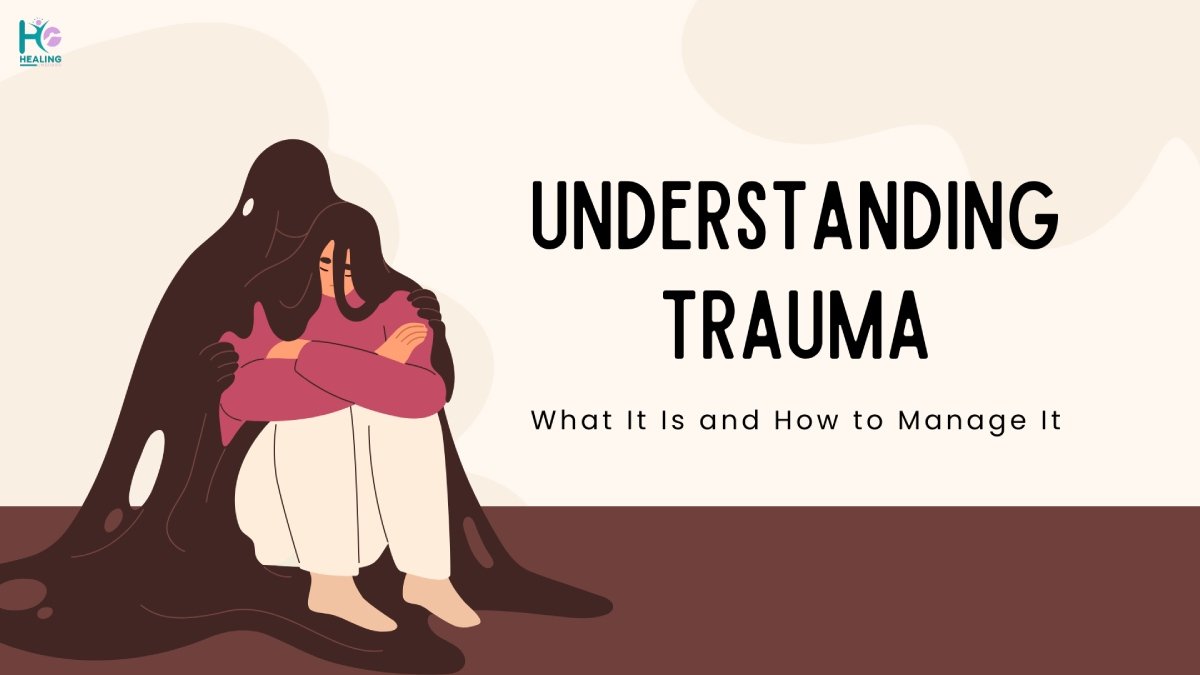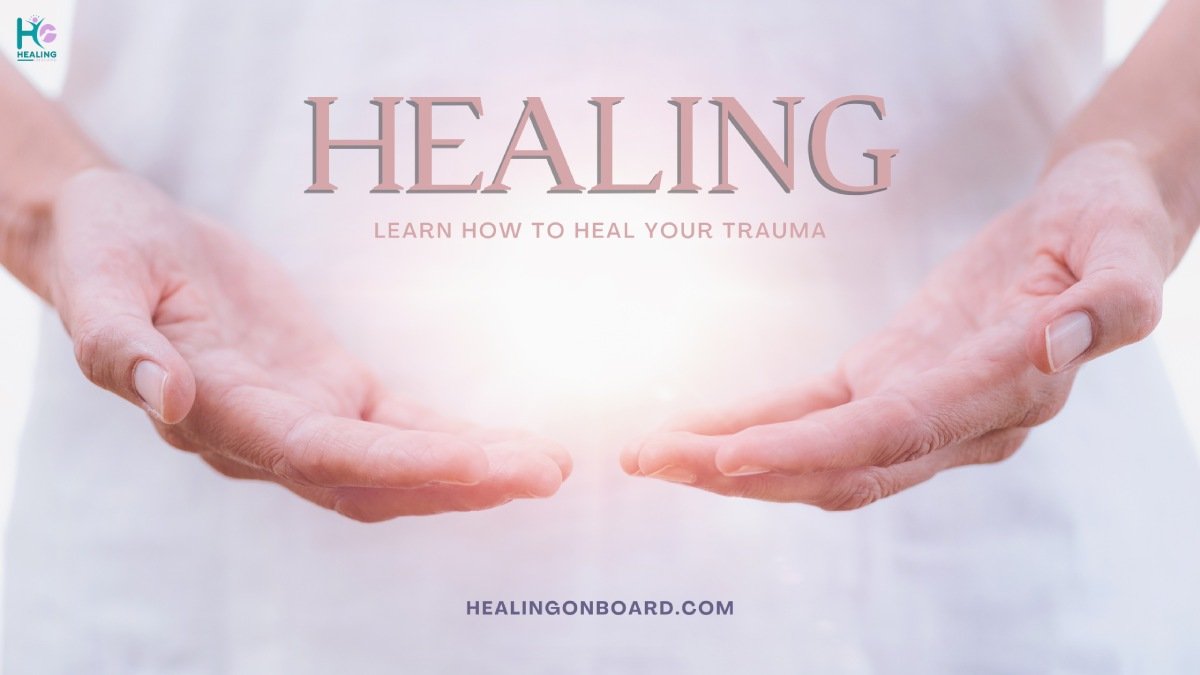Trauma is a profound emotion and recovering from it takes time, patience, and support of the appropriate kind. Childhood trauma, relationship trauma, surprise trauma, and trauma are multi-generational, and they deteriorate someone’s mental and physical health. In short, there are ways to overcome your trauma and get you to emotional normalcy again, build confidence, and live a more harmonious life. There are ways to heal your trauma, one can walk towards inner healing and permanent emotional relief.
What is Trauma?

It is a profound horrifying experience that adversely affects a person’s mental and physical health. It can have a lasting effect on a person’s mental health and overload their ability to cope, leading to anxiety, depression, and emotional distress if left unaddressed.
Types of Trauma
- Acute Trauma – It is caused by a one-time extremely stressful incident such as an accident, assault, or natural disasters
- Chronic Trauma – This type is due to repeated exposure to a disturbing event, such as domestic violence, or bullying.
- Complex Trauma – Is caused by repeated and prolonged exposure to highly stressful events, typically dehumanizing, such as in cases of child abuse.
View this post on Instagram
Effects of Trauma
- Emotional distress (anxiety, depression, PTSD)
- Difficulty trusting others
- Physical symptoms (fatigue, headaches)
- Negative self-perception
6 Ways To Heal Your Trauma

1. Acknowledge and Accept Your Trauma
There are many ways to heal your trauma the first step of any trauma healing process is recognizing and accepting the trauma you’ve experienced.
Suppressing your painful emotions can lead to long-term distress or depression, while accepting them helps you to move forward releasing your painful experience.
Identify and accept the trauma you have endured The first step with any trauma healing process is identifying and taking to thank you for the trauma you have faced.
It’s like comparing “taking the pain” with “suppressing your pain.” Suppressing the painful emotions that come with your life will come back to haunt you and all you will find after a long time is either a disturbing state of mind or an actual depression while accepting the painful feelings will let you deal with those inner pain and help you move on with relieving yourself of the painful experience.
How To Acknowledge Trauma:
- Identify your triggers: This requires paying attention to the thoughts, emotions, and situations that have been triggering distress in them.
- Embrace your feelings: Don’t be afraid of judgment, and let yourself feel feelings, including anger, sadness, and fear.
- Use a journal: Start writing about your healing journey that can help you to process your emotions and identify the triggers.
Acceptance doesn’t mean wallowing in the past; it means recognizing what took place, understanding its impact, and allowing yourself to heal and move forward.
2. Seek Professional Support
Healing trauma often requires professional assistance, especially when the emotional weight is excruciatingly unbearable. Therapists, counselors, and support groups provide the valuable assistance needed to navigate painful experiences.
There are ways to heal your trauma, usually requires professional support, especially if your emotions seem overwhelming. Support groups, therapists, and counselors can assist with understanding and expressing painful feelings.
Effective Therapies for Trauma Healing:
- Cognitive Behavioral Therapy (CBT): Helps identify and change negative thought patterns related to trauma. It assists individuals in identifying their negative thoughts and patterns related to their traumas and changing such thoughts.
- Eye Movement Desensitization and Reprocessing (EMDR): Uses guided eye movements to reprocess traumatic memories. It helps to understand their feelings.
- Somatic Therapy: The aim is to release trauma via the body using awareness and movement. Moreover, support groups or speaking with a trusted mentor would always feel comforting and reassuring along your healing path.
Moreover, joining support groups or speaking to a trusted mentor will provide comfort and assurance in the healing journey.
3. Practice Mindfulness and Meditation
Through mindfulness, you can guide yourself to be in the present moment, thus lowering anxiety and emotional distress triggered by past traumas. These approaches like meditation and deep breathing exercises work to provide one with inner peace and relief.
Mindfulness Practices To Heal Trauma:
- Deep Breathing Exercises: Breathing exercises like diaphragmatic breathing help in calming the nervous system.
- Body Scanning Meditation: This helps release tension and troubles and increase the awareness of physical sensations.
- Grounding Techniques: This technique helps to focus on the present moment by sensing it like touch, smell, and sound.
By incorporating mindfulness and meditation into your daily routine, you can cultivate emotional flexibility and manage stress more effectively.
4. Engage in Physical Activity and Movement Therapy
Physical activity theoretically plays a pivotal role in healing trauma by releasing pent-up stress in the body through motion and overall wellness. Physical activity and movement therapy are avenues through which trauma is healed, offering healthy outlets.
Best Physical Activities for Trauma Healing:
- Yoga: Combines breath control, movement, and meditation to help in relaxation.
- Dance Therapy: Allows self-expression through movements that release feelings.
- Outdoor Exercise: Walking, hiking, and swimming relieve tension and help with mood.
Besides aiding in building a stronger body, day-to-day movement also ameliorates emotional healing by balancing stress hormones.
5. Build a Strong Support System
Being in the company of benevolent and growth-oriented people boosts the healing journey. Isolation fuels trauma, while connection builds emotional growth and strength.
Ways to Strengthen Your Support System:
- Consider talking to friends and family you can trust.
- Participate in trauma recovery or mental health support networks.
- Take part in community activities to integrate.
Having a sound emotional network helps you feel heard and validated in your healing experience.
6. Create Healthy Coping Mechanisms
Developing adaptive coping strategies will yield emotional relief extending beyond the immediate future. Watching videos and drinking alcohol will keep you bogged down during the work while healthy coping indirectly promotes genuine healing.
Healthy Coping Methods:
- Creative Expression: Art, music, and writing serve as powerful outlets for processing emotions.
- Self-Care Routine: Cultivate habits such as reading, bathing, or recording gratitude that would specifically involve nurturing your mind and body.
- Set boundaries: You can protect your mental space by limiting time in toxic environments or around toxic people.
The process of developing healthy and sustainable habits to support your emotional well-being will be your key to knowing what works for you.
Conclusion
Healing from trauma is a journey involving self-compassion, patience, and strategies. There are ways to heal your trauma and you can take enormous steps toward emotional relief by acknowledging your past, seeking professional guidance, practicing mindfulness, engaging in physical activities, creating a support system, and embracing healthy coping strategies.
Healing takes time, and although complete recovery may never happen, every single effort you make will go into building a stronger, healthier you. Embrace the process, and healing is possible through time and perseverance.
You May Like Also:
